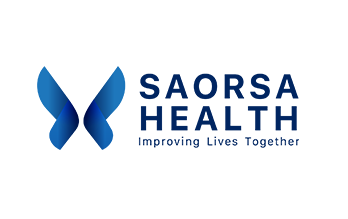Project summary
Gretel Analytics in partnership with SAORSA Health Pty Ltd, Monash University and Peninsula Health has been awarded an ARIIA grant for their ‘Toolkit for building "social license" to implement activity monitoring in residential aged care settings’ project.
Emerging technologies offer the opportunity for enhanced monitoring of older adult activities in care settings. The technologies may have utility for detecting, predicting, and prevention of adverse events in resident care, while facilitating evaluation of innovations in models of care. However, technologies such as artificial intelligence processing of video camera footage.
This project seeks to:
- Develop realistic vignettes for how activity monitoring technologies may be implemented in residential aged care settings.
- Use these cases to undertake a multi-stakeholder acceptability analysis of activity monitoring technology data collection and use.
- Develop a toolkit that organisations can use to navigate the pathway to consumer, organisational and key stakeholder approval, attaining relevant approvals while also building social license to install and use activity monitoring data.
- Pilot test this toolkit for use in two locations with subsequent refinement of the toolkit.
- Disseminate the toolkit for broader use.
Project outcomes
Background and Aims
Emerging technologies, such as video or wearables-based tracking systems, allow resident activities to be tracked, creating a novel health and care quality indicator. However, introducing new technologies to the aged care environment may be met with resistance from residents, family, care-givers and staff.
This project aimed to develop and disseminate a toolkit to help aged care providers to build social license to introduce activity-monitoring technologies and processes in the Australian context.
What We Did
We conducted interviews with aged care residents, family members, staff and mangers. We used this information to develop a toolkit for building social license to introduce activity-monitoring technologies and processes in Australian residential aged care settings.
Outcomes
Key findings that emerged from interviews with end-users and stakeholders:
- All agreed that use of technology in care settings has the potential to improve care delivery and to provide more timely responses to identified arising issues. Managers were particularly interested in the use of technology to assist with workload and reducing risk to residents and staff.
- Different participant groups had divergent views and emphases pertaining to the use of enhanced monitoring in care settings.
- Managers, technology staff, and allied health/researchers displayed more concerns and inquiries about privacy, data management, and economic aspects relating to technology use whereas, aged care residents and relatives generally portrayed that the maintenance of personal safety was their primary concern.
- Everyone felt that good policies and governance are required to regulate and monitor the use of technology in care settings.
- Participant groups were clear in their narrative about technology being used as an adjunct to care, and not as a replacement for staff or important human contact.
- The type of monitoring device or surveillance system emerged as being very important to acceptability levels – with the concept of video image use being commonly objectionable, as opposed to other types of devices.
- All participant groups considered that provision of information about the presence and purpose of any monitoring systems that were being used in respective care environments would be welcome and warranted, and likely lead to better overall acceptance and utility.
Impact on Aged Care and Workforce
Our project showed that a two-hour sleep workshop targeting aged care workers was helpful at improving workers’ confidence, skills and knowledge around managing health among residents. There was a reduction in the percentage of worker’s workload spent on sleep issues from pre-workshop to one-month post-workshop. The mixed Copenhagen Burnout Inventory results suggests that while workshop may have alleviated some aspects of worker’s workload, it may have introduced new challenges in managing work demands. Aged care workers were highly satisfied with the workshop. Overall, equipping aged care workers with education and sleep management skills and knowledge can lead to better sleep outcomes for residents and potentially reduce behavioural, cognitive, and psychological impacts associated with poor sleep. Encouraging whole-organisation training in sleep management and health could mitigate barriers to implementing non-pharmacological strategies.
Resources
We developed four exemplar posters for public display, an animated video that exemplifies what can be incorporated into staff professional development or orientation materials, and a mock live- action video of taking a prospective resident on a tour of the facility with a family member, highlighting the monitoring technologies and their purpose, and responding to questions that may arise.
Next Steps
Further refinement of the initial toolkit is planned as a student project, with further dissemination of refined materials to follow this.
Key contact for further information
Professor Terry Haines, Head of School, School of Primary and Allied Health Care, Monash University


